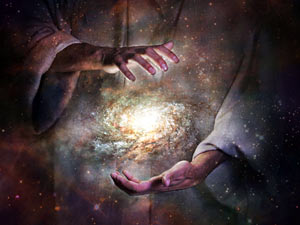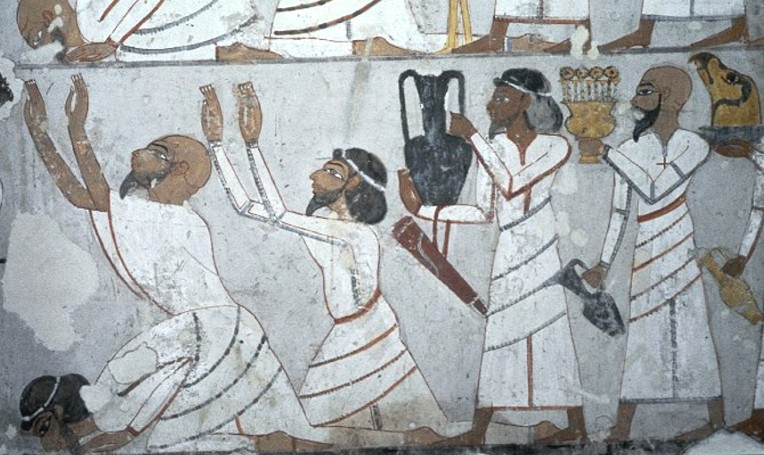God is All:
I had been told that God comes different ways to different cultures.
“So any single conception of God will grasp only one of Your aspects?”
Yes, you see the problem. My nature is quite variegated. People see one aspect and not another.
“Lord, are there multiple levels of Being or something along those lines?”
Yes, but don’t interrupt. The story is much more complex.
God is not mind or matter, or even mind and matter. God is, in some sense, all. And all is very multiplex indeed. Even physics has not been able to produce a universe of “atoms in the void.” There are forces, elements, patterns – you need to know more to go on – that go beyond them.
Then add the kind of stuff the morphic fields’ guy talks about …
Rupert Sheldrake, author of Dogs That Know When Their Owners Are Coming Home, performs scientifically controlled experiments to test different explanations of the uncanny ability of some animals to know what is happening far away.
He found, for example, that even if the owner came home at randomized times, the dog was always waiting expectantly about a half hour in advance. He found that the dog responded as soon as the owner formed the intention to return home.
Sheldrake compares the results of these experiments to studies of how birds and other animals can find their way home.
Since standard explanations fail, he advances the idea that these communications travel by way of morphic fields, using an analogy with gravitational and magnetic fields to explain the “action at a distance” that is a feature of these situations.
… and those who talk about organized information and the like – primitive though they may be – and you begin to get an inkling.
I found that organized information and complexity are increasingly important concepts, particularly in biology, but also in cosmology and the social sciences. Traditional science is reductionist, always trying to explain the whole from the action of the parts.
It is also deterministic, seeing one state of affairs as fully predictable from the previous state. It was widely assumed that this model, which has been particularly successful in chemistry and mechanics, could be used to explain all natural phenomena.
The new theories of organization, information, and complexity challenge this assumption.
The whole—whether a cell, an organism, an ecology, or a universe—has some qualities that the parts do not have and cannot explain. New phenomena, such as life and consciousness, are emergent properties that cannot be understood in terms of inorganic elements.
In some cases, such as why the organs of the body have the size and location that they have, the whole can explain the parts better than the other way around. The self-organization of complex systems, their creative responses to their environment, and their emergent qualities are neither fully predictable nor fully explainable by their constituent elements or prior states.
I had been told that God is all, and that all is very multiplex indeed.
These concepts could provide the basis for understanding this multiplexity.
God: An Autobiography, As Told to a Philosopher – is the true story of a philosopher’s conversations with God. Dr. Jerry L. Martin, a lifelong agnostic. Dr. Martin served as head of the National Endowment for the Humanities and the University of Colorado philosophy department, is the founding chairman of the Theology Without Walls group at AAR, and editor of Theology Without Walls: The Transreligious Imperative. Dr. Martin’s work has prepared him to become a serious reporter of God’s narrative, experiences, evolution, and autobiography. In addition to scholarly publications, Dr. Martin has testified before Congress on educational policy. He has appeared on “World News Tonight,” and other television news programs.
________
Listen to this on God: An Autobiography, The Podcast– the dramatic adaptation and continuing discussion of the book God: An Autobiography, As Told To A Philosopher by Jerry L. Martin.
He was a lifelong agnostic, but one day he had an occasion to pray. To his vast surprise, God answered- in words. Being a philosopher, he had a lot of questions, and God had a lot to tell him.


